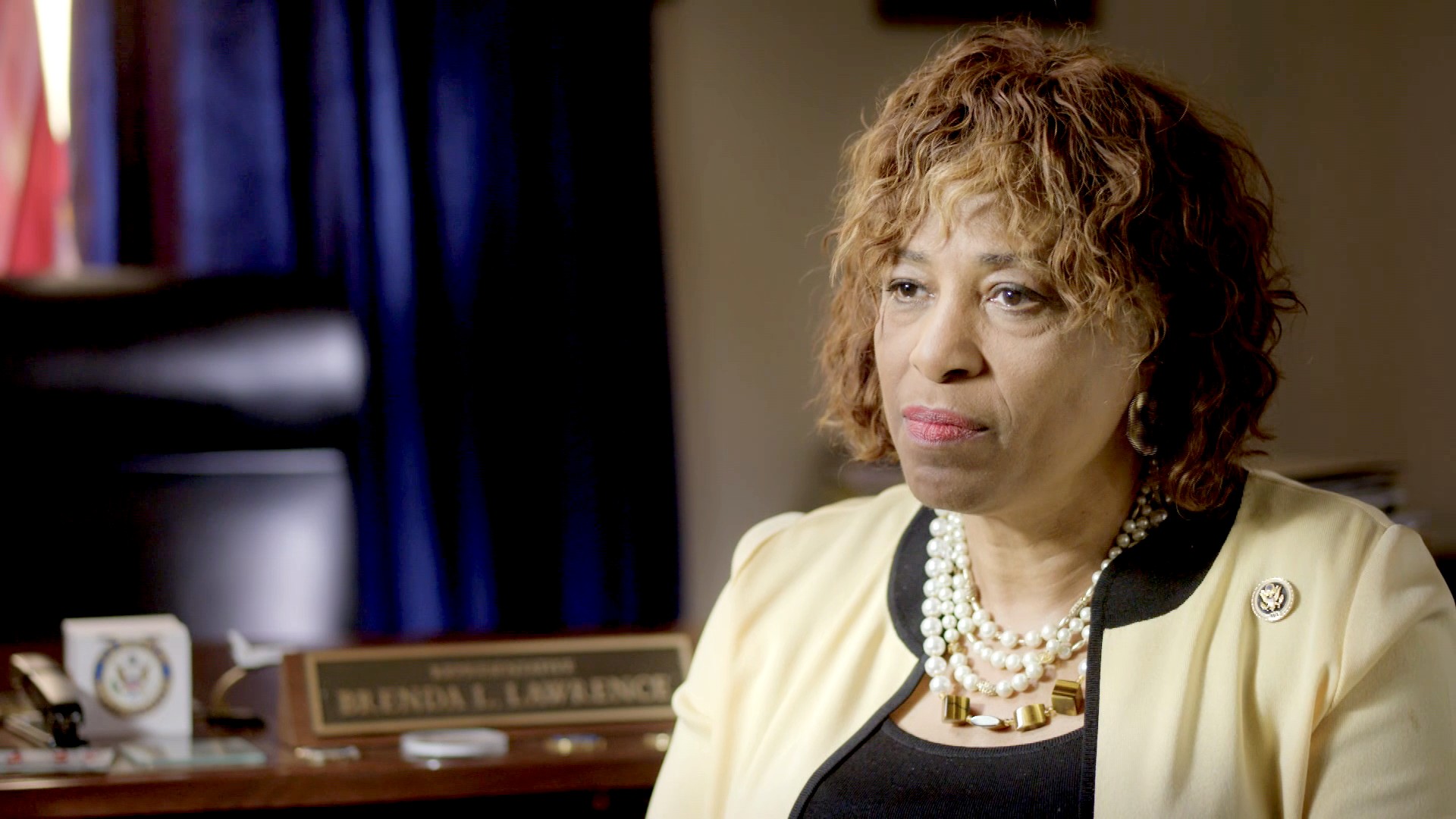Photo by Kristin Little Photography
As part of VICE Impact's Vote Now campaign during Black History Month we reached out to political organizer, San Francisco State University professor, writer and co-founder of Black Lives Matter Alicia Garza to delve into the political power of the black community and the role of Black Lives Matter in creating electoral change. These are her words, but they have been edited and condensed for length and clarity.I think the first election I voted in was the one when I turned 18, and don't remember who or what was on the ballot. But I do remember casting one, and what it felt like, honestly, was really confusing. Who are all these people, what are these issues? I realized how big of a gap there was between my own personal understanding of what was happening around me and the responsibility I felt to participate.I also remember trying to figure out how to make it an easier process. When I first cast my ballot I was a student in college, living away from home and so I really had to figure out how can I participate from where I am, which requires some pre-planning.Fast-forward to the present, 2018 is a major electoral year and black voters must prepare for the midterms by doing a few important things. We are living in some pretty challenging times and there are lots of stuff that's going to be on the ballot that might be confusing, including candidates. So it's important to do your research.Are we voting for a country that's trying to ban Muslims, build walls and deprive people of the things they need to survive? Or, are we trying to build a country that has a rich and vibrant democracy where everyone has the right to cast their vote, where everyone has the right to become a citizen, where everyone has the right to live a dignified life? I encourage black voters to vote along those lines.
Watch some more video from VICE:
Black voters are primed to change who gets put in office. African-Americans, particularly black women, led by groups like Black Voters Matter, Woke Vote and Black PAC, played a major role in the election of Democrat Doug Jones against anti-LGBTQ candidate and alleged abuser, Republican Roy Moore, in the 2017 race for the Senate seat in Alabama.Doug Jones is a really great example of how black women have come together to both upset the status quo and also to hold governing bodies and people who govern accountable when they do the wrong things and to support them when they do the right things. Doug Jones was essentially elected as the first Democratic senator in Alabama in 25 years because of the power of black women and the vision of black women.I think that what happened after the election was also really telling. What we've seen has been that people didn't just go and cast their vote and then expect for the person to do what they wanted them to do. They're still very much engaging Doug Jones, and working to hold him accountable.Those are things that most people in America care about, but unfortunately, those issues get polarized along party lines and they get distorted. One big misconception some candidates have is that all you need to do is participate in black culture and you'll get black people's votes.That includes candidates going on talk shows and appealing to black people through culture as opposed to being a consistent presence in our communities, engaging us on issues that we care about. The other misconception is that black people don't care enough to vote, and that couldn't be further from the truth.When it comes to creating political movements, people may draw parallels between Martin Luther King Jr. and Black Lives Matter. It is challenging to situate Black Lives Matter in the context only of civil rights as it relates to King because it obscures a rich history of social change that happened around King and also after King. He was a part of a 40-year struggle to win voting rights and, ultimately, access to democracy for black people.This is actually a very different moment, yet still some of the same challenges exist. And I say all of that as context to talk about how Black Lives Matter is opening up political space for black people.During the 2016 elections, we were chastised a lot for not backing a candidate, even though not one candidate was able to engage black voters in ways that mattered. We pushed candidates to talk about our issues and many of them had a hard time even declaring that Black Lives Matter, let alone articulating any kind of vision that Black people felt compelled to get behind.Black Lives Matter has opened up a ton of political space for black people to not only resist the current state of affairs, but also to be able to create a new state of affairs that acknowledges the dignity of black life and the need to change policy and culture to make that a reality.
Advertisement
We're in the midst of an incredible crisis. The crisis is not just Donald Trump, but it is certainly the vision and the values of people like him who are transforming the country. So it feels really important in this moment to use that as a compass to determine how we vote and who we vote for.Are we trying to build a country that has a rich and vibrant democracy where everyone has the right to cast their vote, where everyone has the right to become a citizen, where everyone has the right to live a dignified life?
Advertisement
Watch some more video from VICE:

Black voters are primed to change who gets put in office. African-Americans, particularly black women, led by groups like Black Voters Matter, Woke Vote and Black PAC, played a major role in the election of Democrat Doug Jones against anti-LGBTQ candidate and alleged abuser, Republican Roy Moore, in the 2017 race for the Senate seat in Alabama.Doug Jones is a really great example of how black women have come together to both upset the status quo and also to hold governing bodies and people who govern accountable when they do the wrong things and to support them when they do the right things. Doug Jones was essentially elected as the first Democratic senator in Alabama in 25 years because of the power of black women and the vision of black women.I think that what happened after the election was also really telling. What we've seen has been that people didn't just go and cast their vote and then expect for the person to do what they wanted them to do. They're still very much engaging Doug Jones, and working to hold him accountable.
Advertisement
They're also engaging the constituency that elected him to make sure that people know the choices that he's making and to make their voices heard when those choices are aligned with our interests and also to make our voices heard when those choices are not aligned. And that is a really crucial part of governance.The reality is we live in a democracy that is deeply flawed and produces undesirable outcomes for a lot of people. There are many people in this country who feel that voting doesn't actually matter, and that the two party system is rigged. That corporations and other really powerful interests control who gets elected and their participation is really a rubber stamp. That should be concerning to everybody.The reality is they're not wrong. I believe that it is important to engage in an arena where millions of people use the opportunity, if they are able, to participate in decision making. I don't think it's strategic to ignore that it is a site of struggle and, at the same time, I don't think it's useful to demonize people who choose not to vote.
The real question is what do we need to do build a functional democracy that people can believe in? That's something I think about and work on every single day.The issues that black people care about are every issue that anybody else cares about--safety and violence. Black folks care about access to healthy food; black people care about economic security and education. We care about making sure that our kids grow up to be adults. We care about making sure we have the rights to make decisions. We care about making good wages.The reality is we live in a democracy that is deeply flawed and produces undesirable outcomes for a lot of people.
Advertisement
We also have to take voter suppression of the black community into consideration, which was a problem in the past and continues to persist. Voter suppression is obviously about interrupting power. And we see some of the strongest kind of voter suppression laws in the South where black people are concentrated and where black people actually have a base of power.Voter suppression laws include things like, requiring identification, kicking people off voter rolls due to inactivity, and redistricting. The consequences are that it diminishes the political power that black people in particular have to be able to impact how governance happens.So it's imperative that are taking on these laws in states because it means the disenfranchisement of millions of people who deserve to make decisions over their own lives.Black voters are primed to change who gets put in office.
Advertisement
The political space that Black Lives Matter has opened up has been vast. In 2015 there were multiple laws passed at the state and federal level related to criminal justice reform and that is the direct result of the movement. We have seen the election of black candidates challenging status quo candidates.These examples broaden how we understand what is political activity. It is voting, and it also culture change. It is also creating space for new ideas about how society should be organized that is sometimes missing from our narrative of civil rights.The most important contribution of Black Lives Matter has been creating political space for black people to be and feel human again and in a country that is built on the dehumanization of black people.The most important contribution of Black Lives Matter has been creating political space for black people to be and feel human again and in a country that is built on the dehumanization of black people.

